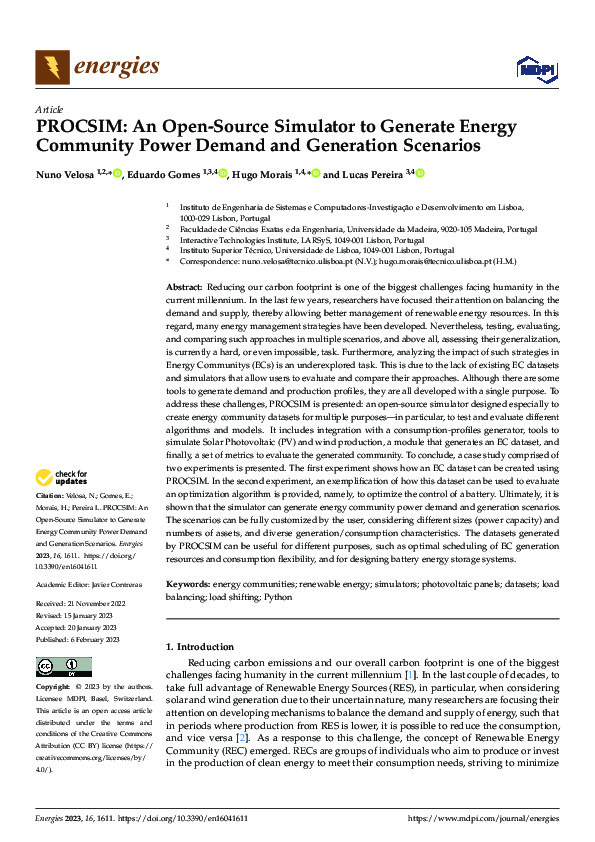PROCSIM: An Open-Source Simulator to Generate Energy Community Power Demand and Generation Scenarios
Abstract
Reducing our carbon footprint is one of the biggest challenges facing humanity in the current millennium. In the last few years, researchers have focused on balancing the demand and supply, thereby allowing better management of renewable energy resources. In this regard, many energy management strategies have been developed. Nevertheless, testing, evaluating, and comparing such approaches in multiple scenarios, and above all, assessing their generalization, is currently a hard, or even impossible, task. Furthermore, analyzing the impact of such strategies in Energy Communities (ECs) is an underexplored task. This is due to the lack of existing EC datasets and simulators that allow users to evaluate and compare their approaches. Although there are some tools to generate demand and production profiles, they are all developed with a single purpose. To address these challenges, PROCSIM is presented: an open-source simulator designed especially to create energy community datasets for multiple purposes—in particular, to test and evaluate different algorithms and models. It includes integration with a consumption-profiles generator, tools to simulate Solar Photovoltaic (PV) and wind production, a module that generates an EC dataset, and finally, a set of metrics to evaluate the generated community.
To conclude, a case study comprised of two experiments is presented. The first experiment shows how an EC dataset can be created using PROCSIM. In the second experiment, an exemplification of how this dataset can be used to evaluate an optimization algorithm is provided, namely, to optimize the control of a battery. Ultimately, it is shown that the simulator can generate energy community power demand and generation scenarios. The scenarios can be fully customized by the user, considering different sizes (power capacity) and numbers of assets, and diverse generation/consumption characteristics. The datasets generated by PROCSIM can be useful for different purposes, such as optimal scheduling of EC generation resources and consumption flexibility, and for designing battery energy storage systems.

